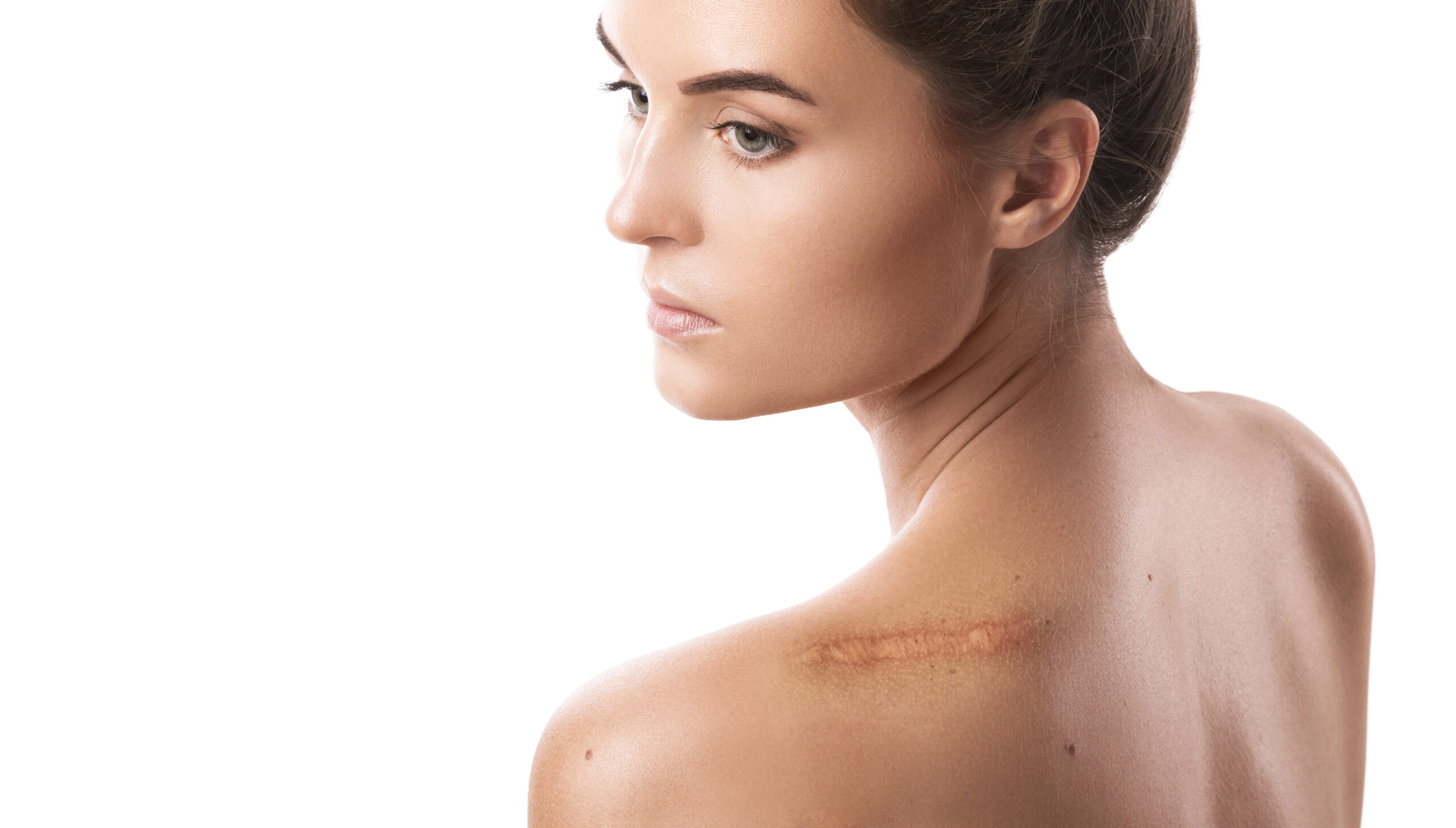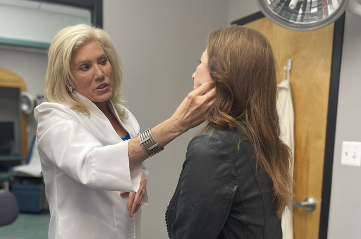


Living our lives to the fullest can leave us with some scars. Whether you scraped your knee falling off your bike when you were young, you picked a few too many breakouts in your teens, or any number of life events we are all left with quite a few across our bodies. Some of us are left with scars that are highly visible and might affect self-confidence while others are in more private areas and may become obstacles to intimacy.
What Causes Scarring?
Scars naturally occur anytime the body receives a wound. When the skin gets damaged, it naturally forms new collagen fibers to repair the wound. That new layer of skin is scar tissue. It has a different look and texture than the surrounding skin tissue.
Fine scars seem to disappear once the wound is completely healed, but larger or deeper scars can remain visible for the rest of your life. Different kinds of skin heal differently, and some people are more prone to scarring. The most common types of scars are:
- Keloid scars, caused by overproduction of collagen during wound healing
- Contracture scars, caused by burns
- Surgical scars
- Acne scars
The good news is that there is help for fading of scars. They may never completely go away, but the appearance of a scar can be greatly improved with the right treatment or prevented with the right care.
How to Prevent Scarring
You can’t prevent the unexpected, but if you’re planning a pregnancy or surgery there are ways to decrease the impact of preventing scarring or stretch marks.
Keeping the skin as healthy as possible is a start. That includes eating a balanced diet, staying hydrated, and making sure that even minor wounds stay clean and sanitary. Daily moisturizing is also recommended, especially for preventing stretch marks. Skin that is supple and elastic can stretch more without tearing. As many of us have learned in our younger years, picking or scratching a wound does not help the healing process.
Using topical treatments like Silagen scar therapy gel after a surgical procedure is highly recommended. Dr. Fischer at The Advanced Center for Plastic Surgery can also customize a scar treatment plan specifically for your needs.
How Do You Treat Scarring?
Treatments for scarring typically fall in one of three categories:
- Surgical interventions
- Injections
- Topical creams and gels
- Laser resurfacing
Let’s explore each of these further.
Surgery for Scars
Deep scars may require surgical treatment for any real improvement. Skin grafts, dermabrasion, laser surgery, or excision are the most commonly used surgical options. Deciding on surgery as a way to treat scarring is a big decision, but if scars are serious enough to impair movement or affect your quality of life, it might be the right decision.
How Long Should You Wait for Scar Surgery?
Since most scars fade with time, it’s best to wait at least one year after surgery or injury to make a decision about how to treat your scars. Re-traumatizing skin while it is still healing can add more complications and possibly make scars worse.
Injections and Injectables
Steroid injections have been used successfully to flatten and soften the appearance of raised scars like hypertrophic or keloid scars. Steroids are also injected to relieve the discomfort associated with scarring and may help to reduce large scars.
Injectable dermal fillers such as Restylane and Juvederm minimize lines and plump up areas that appear to be sunken or hollow. These products can be helpful with diminishing the look of some types of scarring.
What Helps Acne Scarring?
The age-old question: what helps acne scars? Scars left by acne can be especially painful, emotionally speaking. What helps acne scarring the most is to prevent acne in the first place, but that isn’t always possible. Sometimes, by the time you’ve found an effective acne treatment, scarring has already happened.
The good news is that there are affordable, non-invasive treatments that can improve the look and texture of your skin, even acne scars. Microneedling, chemical peels, and resurfacing treatments like Halo™ and Forever Young BBL are all highly effective methods for revealing smoother, younger-looking skin within a few short sessions. Halo and BBL are often recommended for use together.
Help for Scarring
Every scar tells a story, but you can rewrite that story at any time. If you’re ready to learn more about reducing scars left from injury, surgery, or acne, call Dr. Fischer at the Advanced Center for Plastic Surgery for more information.
Dr. Beverly A. Fischer is passionate about her role as a leading female plastic and cosmetic surgeon in Baltimore, Maryland and beyond. She believes that plastic surgery makes a positive, life-changing difference, whether you’re renewing your body, face, and skin or embarking on an entire gender transition.
Reach out
We are happy to answer any questions you have. Use the form to request a consultation or more information about specific services. A member of our team will will contact you shortly.
Contact Us
 Back to Blog
Back to Blog


